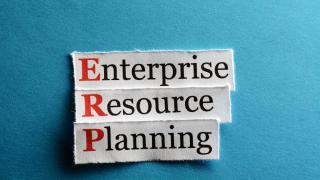
Although ERP systems are becoming more and more prominent within the manufacturing sector, there are a number of companies who still run their business using manual procedures. The advent of 4IR will eventually make these procedures obsolete, although there are a number of benefits to be enjoyed by those who already have ERP software in place.
ERP – or enterprise resource planning – manages the day-to-day aspects of running a business. ERP systems are used across a plethora of industries; however, manufacturing and engineering stand to benefit from ERP even more so than most of their counterparts. Why? Because the everyday nature of engineering and manufacturing commands a seamless business process, which is exactly what ERP can offer.
So why should you be using an ERP system? Here are our five top reasons:
Reason 1: ERP Allows You to Quote Quickly – And Accurately:
Traditional quoting methods can prove to be both time-consuming and complicated, as they often lead to vague estimations surrounding labour costs and man hours. On top of this, suppliers may also need to liaise with external sources to obtain raw material costs. This can all result in an inaccurate quotation that takes days to compile.
By implementing an ERP system, you can slash the time it takes you to quote your customers, whilst also ensuring that the price you give is a genuine reflection of the work involved. Most ERP systems use pre-set labour rates to provide a cost per unit and per specified price break, allowing you to adjust profit margins accordingly – and with ease.
It’s often true of quoting that the earliest bird gets the worm, especially when it comes to urgent jobs with short lead times. By using ERP software to respond to RFQs, you will never miss an opportunity to fill immediate capacity and maximise the amount of business you win.
Reason 2: ERP Schedules Jobs With Ease:
ERP software allows you to view machine availability at a glance, making it easier than ever to schedule jobs without conflict. This is especially beneficial to larger manufacturing and engineering companies with a vast plant portfolio, as you can easily identify occupied and idle machines, as well as those needed to finish parts which are already in production.
This feature also affords users a targeted approach when it comes to sales and new business. The complete transparency offered by ERP software means that it’s easy to see where your capacity lies, allowing you to advertise and prioritise these areas as required.
Reason 3: ERP Reduces Production Errors:
ERP software can detect quality issues before conventional quality control methods are able to, which means that any problems are caught as early as possible. This prevents material wastage, as well as other unnecessary production costs incurred as a result of errors.
What’s more, quality issues within production can have a knock-on effect further down the line. This can result in missed deadlines as components are reworked, causing a detrimental impact to the entirety of the supply chain. Therefore, it’s best to have contingencies in place to prevent – or at least, reduce – the probability of these errors occurring.
It goes without saying that quality and reliability are the number one factor contributing towards customer satisfaction. The use of ERP software is invaluable when it comes to maintaining your company’s hard-earned reputation as a quality supplier who can be counted upon.
Reason 4: ERP Organises Your Inventory and Provides Traceability:
Whereas conventional purchasing methods typically require the user to cross-reference multiple databases, ERP software offers a centralised solution to inventory management. The process of checking and ordering stock, such as raw materials, is streamlined and efficient, with all of the required information stored in one place in accordance with the user’s requirements.
In addition, some ERP packages will allocate the source of raw materials to a completed job, which allows for full traceability. Within safety-centric industries such as aerospace and marine, traceability is often a prerequisite of a supplier undertaking a job on an OEM’s behalf. ERP makes this process as straightforward as possible, allowing you to offer added reassurance to your customers.
Reason 5: ERP Helps You To Make Better Business Decisions:
You may remember from my previous blog about big data that data collection is an essential navigational tool to making informed business decisions. ERP software can seamlessly collect data from all aspects of the production process, including quality data, set-up times, cycle times and labour costs. This information will allow you to see where improvements can be made, as well as what is already working to the best of its abilities.
In addition, data collection helps to create internal accountability. As each job is assigned to the employee who carried out the work, employers are able to monitor crucial KPIs and offer targeted training where needed. This level of transparency is hard to acquire through other means, but by using ERP software, you can develop a knowledgeable, efficient workforce who have the company’s best interests at heart.
--
If you’re looking for a quality ERP solution, Shoptech’s E2 Shop System offers all of the above - and more! Please click here for more information.
